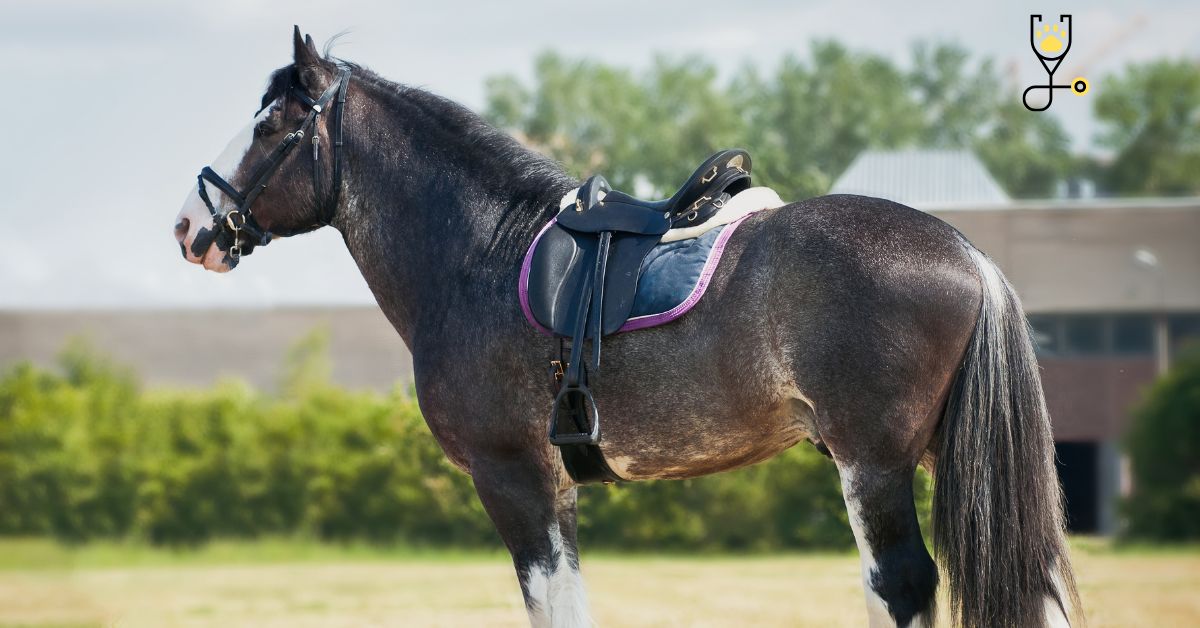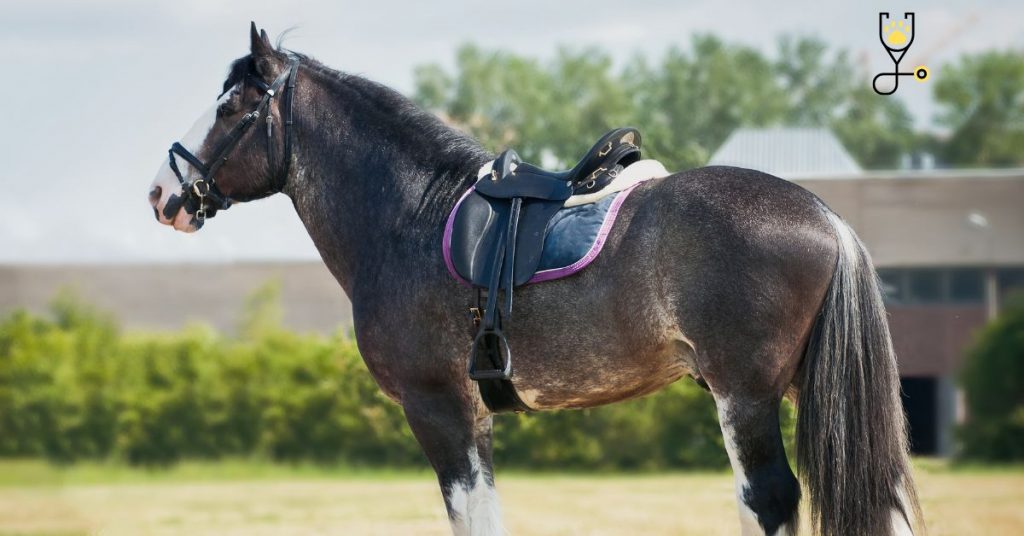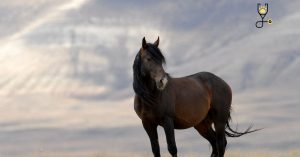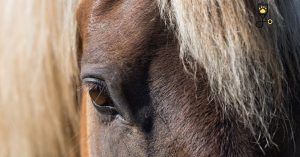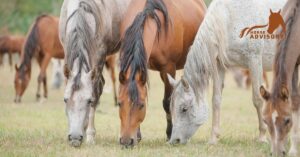Do you know what anhidrosis is? If not, don’t worry, many people are not familiar with this horse health condition. Anhidrosis is a rare and serious problem that can occur when horses don’t sweat. Without sweating, horses can overheat and suffer from other health problems. In this blog post, we’ll cover what causes anhidrosis in horses, how to treat it, and ways to prevent it from happening. Stay cool out there!
What Is Anhidrosis?
Anhidrosis is a condition that prevents horses from sweating. This can be a problem because horses sweat to cool down their bodies and prevent overheating. When they can’t sweat, they are at risk for serious health problems, including heat stroke. Anhidrosis can affect any horse, but it is most common in hot climates and during the summer months.
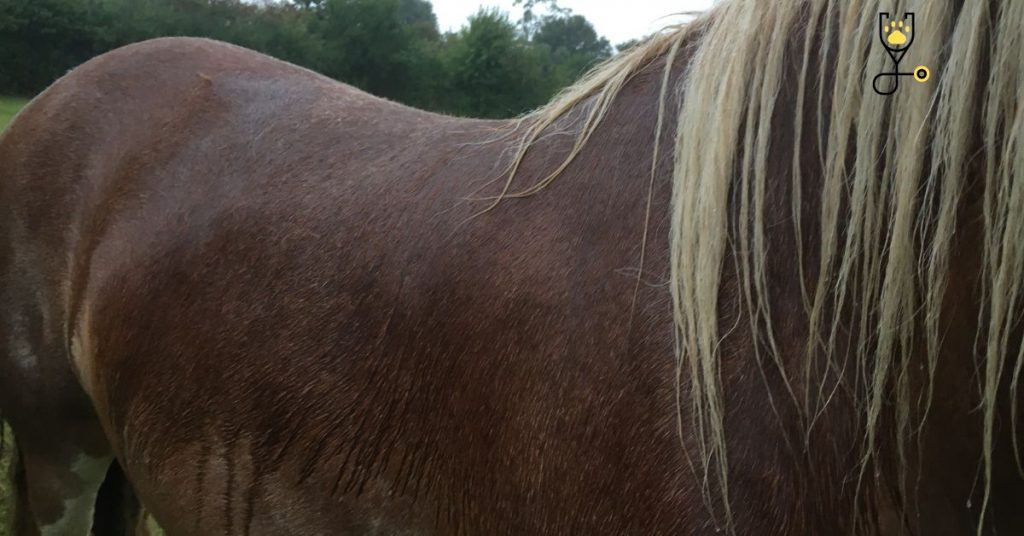
Types of anhidrosis
There are two types of anhidrosis
- Primary anhidrosis is a genetic condition that cannot be cured.
- Secondary anhidrosis is caused by a medical condition or injury that prevents the horse from sweating. In some cases, the cause of secondary anhidrosis is unknown.
Causes Of Anhidrosis in Horses?
There are many potential causes of anhidrosis in horses.
1. Environmental factors: Hot, humid weather can cause anhidrosis. This is because the horse’s sweat glands can become overloaded in these conditions and stop working properly.
2. Infections: Viral infections, such as the West Nile virus, can cause anhidrosis. Bacterial infections, such as strangles, can also lead to this condition.
3. Toxins: Some plants and chemicals can be toxic to horses and prevent them from sweating. For example, sweet clover and red maple leaves contain substances that can damage the horse’s sweat glands.
4. Medications: Some drugs, such as corticosteroids, can interfere with the horse’s ability to sweat.
5. Injuries: Nerve damage from injuries, surgery, or certain medical conditions can prevent the horse from sweating.
6. Cancer: Tumors in the sweat glands can cause anhidrosis.
7. Other conditions: Dehydration, obesity, and stress can also lead to anhidrosis.
8. Unknown causes: In some cases, the cause of anhidrosis is unknown.
Signs And Symptoms Of Anhidrosis in Horses
The most obvious symptom of anhidrosis is the horse’s inability to sweat. This can lead to other symptoms, such as:
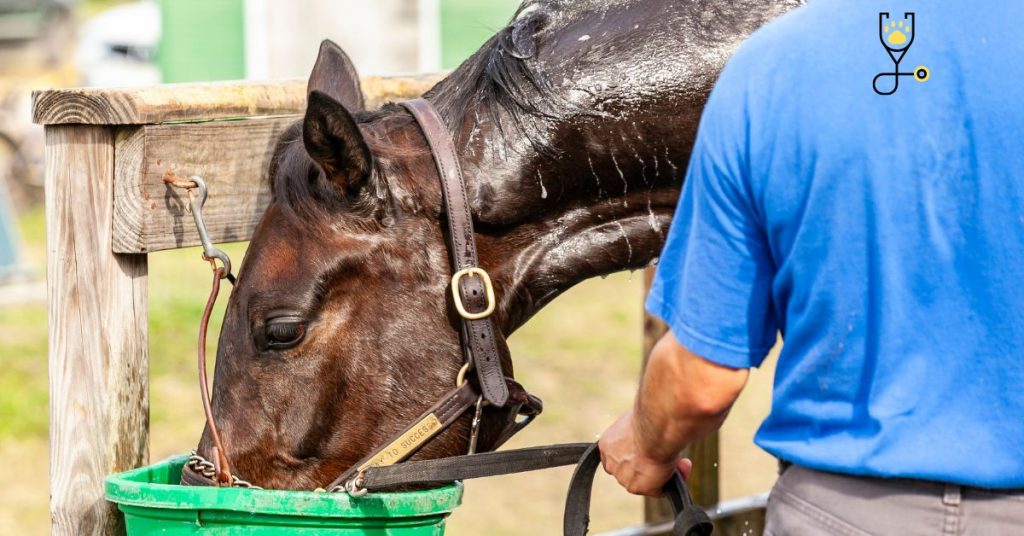
1. Elevated body temperature
If the horse cannot sweat, its body temperature will rise.
2. increased heart rate
The horse’s heart will work harder to pump blood through its overheated body.
3. Respiratory distress
The horse may pant or have difficulty breathing as its body tries to cool itself down.
4. weakness
The horse may become weak and lethargic as its body temperature rises.
5. Muscle tremors
The horse may start to tremble as its body temperature gets too high.
6. convulsions
In severe cases, the horse may have seizures or convulsions due to heat stroke.
7. collapse
If the horse’s body temperature gets too high, it may collapse. This is a medical emergency and can be fatal if not treated immediately.
Preventions Of Anhidrosis in Horses
There is no sure way to prevent anhidrosis. However, there are some things that you can do to reduce your horse’s risk:
- Keep your horse in a cool, well-ventilated area during hot weather.
- Avoid taking your horse out in hot, humid weather if possible.
- Make sure your horse has access to fresh water at all times.
- Don’t let your horse get too overweight. obesity can make anhidrosis more likely.
- Use fly sheets or other protective clothing to help keep your horse’s skin from getting too hot.
- Talk to your veterinarian about vaccines for diseases that can cause anhidrosis, such as the West Nile virus.
- Be aware of the signs and symptoms of anhidrosis so that you can seek medical help for your horse if necessary.
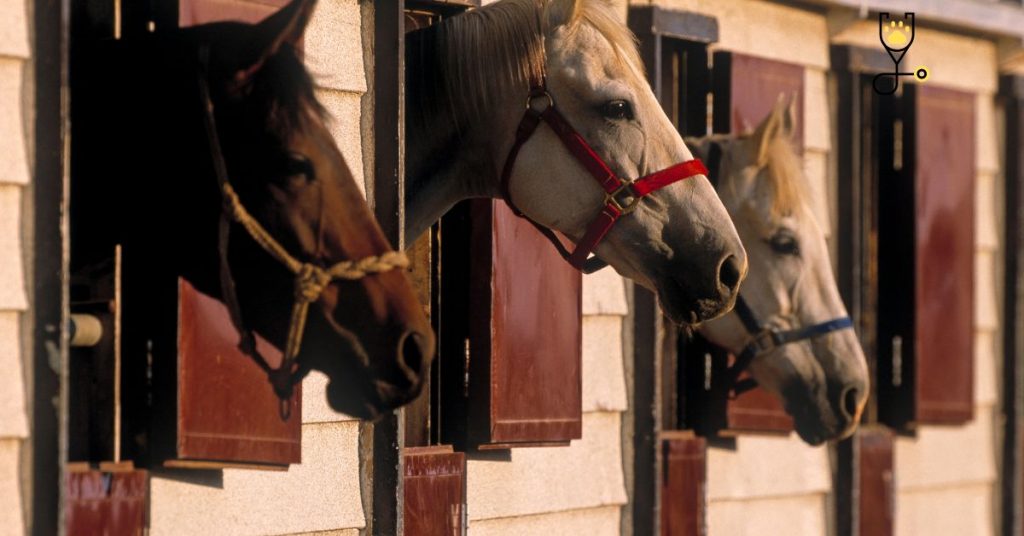
How Is Anhidrosis Diagnosed?
Anhidrosis is typically diagnosed based on the signs and symptoms that are present. Your veterinarian will ask about your horse’s history and perform a physical examination. They may also order laboratory tests, such as a blood test or skin biopsy, to rule out other conditions. In some cases, a sweat test may be done to confirm the diagnosis. This test measures the horse’s ability to sweat and can help to identify the type of anhidrosis that is present.
Treatment Of Anhidrosis in Horses
There is no cure for anhidrosis, but there are ways to manage the condition and prevent serious health problems.
1. Avoid hot, humid weather: If your horse has anhidrosis, it is important to avoid hot, humid weather whenever possible. This will help to prevent the condition from worsening and will reduce the risk of heat stroke.
2. Keep your horse cool: If your horse cannot sweat, it is important to keep it cool. You can do this by providing shade and fans, and by misting the horse with water.
3. Provide adequate ventilation: Good ventilation is essential for horses with anhidrosis. Make sure that the horse has access to a well-ventilated stall or paddock.
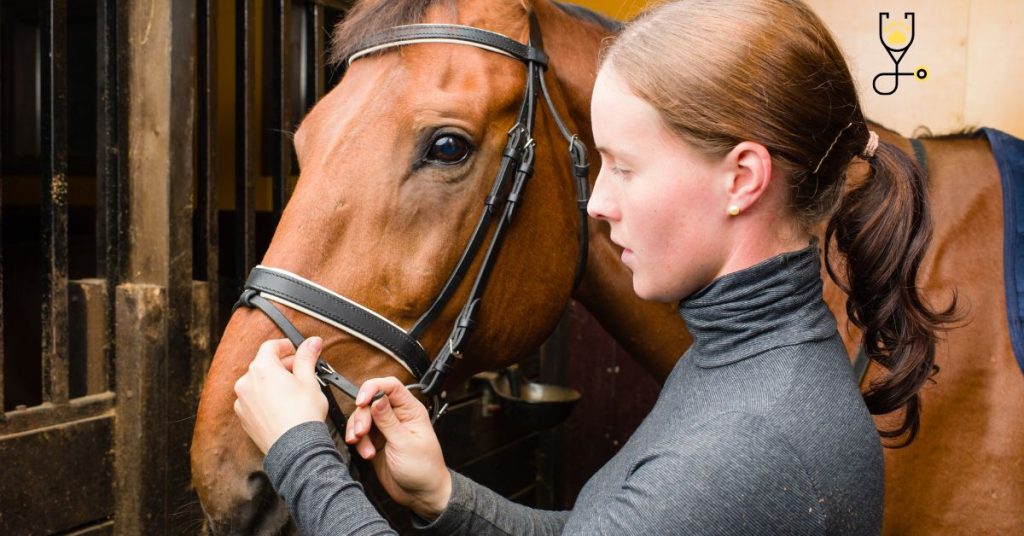
4. Avoid strenuous exercise: Strenuous exercise will increase your horse’s body temperature and should be avoided. If your horse must exercise, do so in cooler weather and make sure to provide plenty of breaks.
5. Monitor your horse’s weight: Obesity can make anhidrosis worse, so it is important to keep your horse at a healthy weight.
6. Follow your veterinarian’s instructions: If your horse is prescribed medication, make sure to follow your veterinarian’s instructions and monitor your horse closely.
Anhidrosis can be a serious condition, but with proper management, most horses can live a normal, happy life. If you think your horse may have anhidrosis, talk to your veterinarian. They can help you create a management plan that is right for your horse.
Best Medicines For Anhidrosis in Horses
1. sweat regulators: to help the horse’s body regulate its sweating.
2. anti-inflammatory medication: to reduce swelling and pain.
3. anticonvulsants: to prevent seizures.
4. cooling blankets: to help keep the horse’s body temperature down.
5. electrolyte supplements: to replace lost minerals.
6. vitamin B supplements: to help the horse’s nervous system function properly.
Prognosis Of Anhidrosis in Horses
The prognosis for horses with anhidrosis is generally good. With proper management, most horses can live a normal, happy life. However, it is important to avoid hot, humid weather whenever possible to prevent the condition from worsening and to reduce the risk of heat stroke. If your horse is obese, weight loss may be recommended to improve the prognosis. In severe cases, anhidrosis can be fatal. However, this is rare and typically only occurs if the condition is left untreated. Anhidrosis is a condition that affects horses and can cause them to have difficulty sweating. There are several ways to prevent and treat anhidrosis, but there is no cure for the condition. With proper management, most horses can live a normal, happy life.
Frequently Asked Questions
1. What is anhidrosis?
Anhidrosis is a condition that affects horses and can cause them to have difficulty sweating.
2. What are the signs and symptoms of anhidrosis?
The signs and symptoms of anhidrosis include abnormal sweating, increased body temperature, and increased heart rate.
3. How is anhidrosis diagnosed?
Anhidrosis is typically diagnosed based on the signs and symptoms that are present. Your veterinarian will ask about your horse’s history and perform a physical examination. They may also order laboratory tests, such as a blood test or skin biopsy, to rule out other conditions. In some cases, a sweat test may be done to confirm the diagnosis.
4. What is the treatment for anhidrosis?
There is no cure for anhidrosis, but there are ways to manage the condition and prevent serious health problems. These include avoiding hot, humid weather, keeping your horse cool, providing adequate ventilation, and avoiding strenuous exercise. Your veterinarian may also recommend that you monitor your horse’s weight and follow their instructions if medication is prescribed.
5. What is the prognosis for horses with anhidrosis?
The prognosis for horses with anhidrosis is generally good. With proper management, most horses can live a normal, happy life. However, it is important to avoid hot, humid weather whenever possible to prevent the condition from worsening and to reduce the risk of heat stroke. If your horse is obese, weight loss may be recommended to improve the prognosis. In severe cases, anhidrosis can be fatal. However, this is rare and typically only occurs if the condition is left untreated.
6. My horse has anhidrosis. What do I do now?
If your horse has been diagnosed with anhidrosis, there are several things that you can do to manage the condition. These include avoiding hot, humid weather, keeping your horse cool, providing adequate ventilation, and avoiding strenuous exercise. Your veterinarian may also recommend that you monitor your horse’s weight and follow their instructions if medication is prescribed. Anhidrosis is a condition that affects horses and can cause them to have difficulty sweating. There are several ways to prevent and treat anhidrosis, but there is no cure for the condition. With proper management, most horses can live a normal, happy life.
